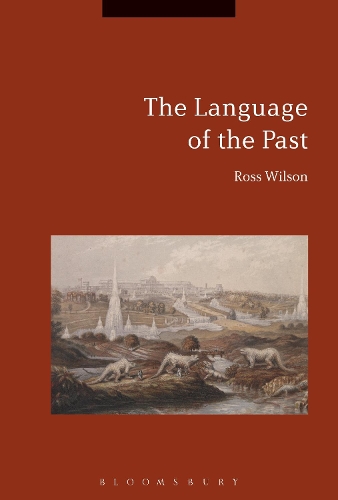
The Language of the Past
(Hardback)
Available Formats
Publishing Details
The Language of the Past
By (Author) Prof. Ross Wilson
Bloomsbury Publishing PLC
Bloomsbury Academic
14th July 2016
14th July 2016
United Kingdom
Classifications
Tertiary Education
Non Fiction
907.2
Physical Properties
Hardback
256
Width 156mm, Height 234mm
540g
Description
The Language of the Past analyzes the use of history in discourses within the political, media and the public sphere. It examines how particular terms, phrases and allusions first came into usage, developed and how they are employed today. To speak of something or someone as representing the stone age, or characterize an institution as byzantine, to describe a business relationship as feudal or to disparage ideals or morality as Victorian, refers to both a perception of the past and its relationship to the present. Whilst dictionaries and etymologies define meanings and origin points of words or phrases, this study examines how history is maintained and used within society through language. Detailing the specific words and phrases associated with particular periods used to describe contemporary society, this thorough examination of language and history will be of great interest to those studying historiography, social history and linguistics.
Reviews
We live in a world of dinosaurs and cavemen, of barons and peasants; our cities include Babylon and Rome, and our moral codes extend from the Victorian to the lawless Wild West. Or rather, as Ross Wilson demonstrates in this fascinating study, we lament that we do so, for metaphors and allusions to history constantly bubble through public life as a primary mode of condemning unwanted aspects of the present. This practice embodies the utopian conceit at the heart of modernity-- that the present stands utterly divorced from the past. But it also allows history to creep back in, for it furnishes a language of criticism. * Nicholas Popper, Associate Professor of History, The College of William and Mary, USA *
In The Language of the Past Ross Wilson offers a wide-ranging survey of the multiple ways in which people in Britain and the United States since the eighteenth century have spoken about various past times ancient, medieval and early modern as a form of self-reflection about the nature of modern society and as a means of differentiating the present from past. Focusing on popular rather than academic discourse, he argues that it is this language of the past which functions to create a double-consciousness of past and present that marks the advent of the modern age as an era of progress. The book will be of interest to anyone concerned with the ways in which perceptions of the past serve to establish and maintain contemporary identities and, ultimately, generate a vision of the future. * Gabrielle M. Spiegel, KriegerEisenhower Professor of History, Johns Hopkins University, USA *
A powerful, conceptually well-informed and significant study. . . The author establishes a model for a persuasive study of the relationship between understandings of the past, and its claimed significance for the present. The chapters expose the subtle linguistic battlefields over the usage of words by politicians, commentators and the media to frame and valorise acts of historical commemoration, heritage, and persisting values. . . Importantly a case is made for establishing how the vocabulary and associated historical assumptions continue to underpin contested conceptions of modernity. This [book] ought to be very profitably read by academic historians, undergraduates, especially politicians, and the wider public. It again establishes how important conceptions of the past (and getting them right) is an urgent issue for our contemporary world. * Justin Champion, President of the Historical Association and Professor of the Early Modern History of Ideas, Royal Holloway University of London, UK *
Author Bio
Ross Wilson is Professor of Modern History and Public Heritage at the University of Chichester, UK. He is the author of Representing Enslavement and Abolition in Museums (2011), Landscapes of the Western Front (2012), Cultural Heritage of the Great War in Britain (2013) and New York in the First World War: Shaping an American City (2014).
